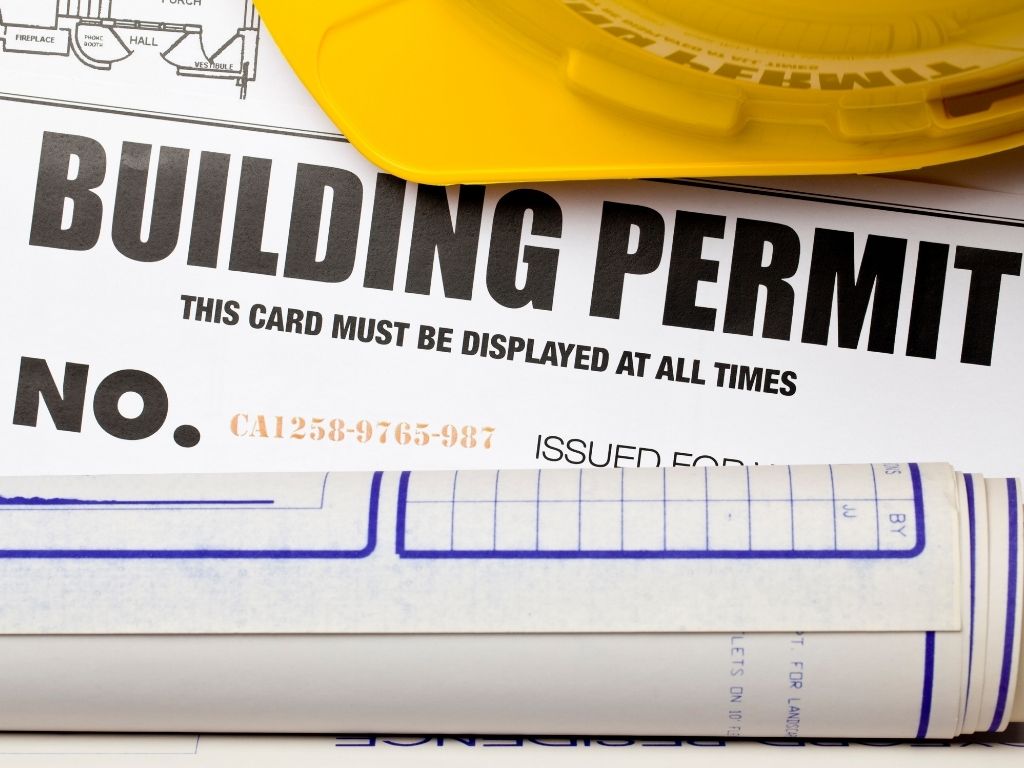Getting a permit for work on your home can seem frustrating, time-consuming, and even a waste of time. It’s your house, why can’t you just renovate it, right?
While it can be annoying, there are reasons you shouldn’t work on your house with a permit, at least any major renovations.
Most municipalities require a permit for any structural, mechanical, or home addition renovations. If you don’t get the permits, you could pay the consequences. Knowing the consequences and how they can hurt you financially and even physically will help change your mind.
It Could Hurt The Resale Value
Something you probably don’t think about when you’re making renovations is how the lack of permits could hurt the resale value. How would buyers even know you didn’t pull permits?
It’s simple.
They’ll ask. Most buyers want to see the permits to know the house passes all local ordinances. If you don’t have the permits, one of two things may happen.
The buyer may walk away or give you a lowball offer. Some may even ask you to go back and pull the permits which is an expensive ordeal.
Bottom line, buyers won’t pay what you are asking for the home because the renovations done without a permit won’t be included in the appraised value. You won’t see a return on your investment and could have trouble selling it.
Refinancing May Be Impossible
If you keep the home but want to refinance, you may not be able to. Lenders usually require an appraisal when you refinance. When the appraiser sees the work and that you didn’t pull permits, they won’t include it in the appraised value.
If the home isn’t worth enough, you can’t refinance. This leaves you with equity in your home you can’t touch or a loan you can’t get out of unless you sell the home.
If you sell the home, though, you’ll face a lower resale value which could lead to financial losses.
You Could Face City Fines
Eventually, the renovations will catch up to you. Even if you don’t refinance or try to sell your home, the city always has ways of discovering unpermitted work.
Whether your neighbor tattles on you or the assessor somehow notices the renovations, you could get hit with a hefty fine. The fines vary by city and state. If you’re in the midst of the work and you’re aught, they’ll make you stop immediately.
Most cities charge a penalty per day that it takes for you to pull proper permits then. If you already completed the work, you’ll face penalties and be required to go through the permit process. If the city doesn’t like the quality of the work or finds issues, you may have to tear it down and start over.
Insurance May Not Cover It
If you didn’t pull permits and the area you renovated has damages, your insurance company may not cover it. This could leave you with thousands of dollars in damage, even though you pay for your insurance policy.
Insurance damages include any damages to the home or damages to a person that occur in the area of the home you renovated with permits. You could be looking at thousands of dollars in damages and even lawsuits if you aren’t careful.
Why Pull Permits?
It seems crazy – it’s your house, why do you have to ask for permission to make renovations. It comes down to one thing – safety.
A permit isn’t a way for the city to make money, even though you pay them. It’s a process. The city looks over the work you plan to do (sketches and contracts) and makes sure everything is within the local code and doesn’t pose any dangers.
The city inspector will also inspect the work while it’s being done and when it’s complete. It’s like having another set of eyes on the contractors doing the work. If you don’t have a trained eye, you may not know when they cut corners, potentially hurting your property’s value and/or putting you and other household members at risk.
What Should You Do If You Didn’t Pull Permits?
If you renovated with permits, do the right thing and go back and pull permits. If you’re upfront with the city, you may be able to get by without hefty fines. Look at is an investment in your home and your future.
If you try to sell the home without permits, it likely won’t get far. If you get by with it, you’ll likely make less on the sales price. If you go back and pull permits, though, you’ll have them to show when you sell the home.
Even if it costs you money in fines or penalties, it’s better than when you’re trying to sell the property and face delays and buyers who just walk away.
Bottom Line
Pull permits for any work that needs it. If you’re unsure, contact the city and ask – don’t just assume you know what does and doesn’t need permits.
If for nothing else, think of the safety it provides. Do you want the risk of issues with the home or the home’s safety on your shoulders? Do you want to live with the risk of something going wrong and costing you even more money?
Even though it’s your home and you should be able to do with it what you want, permits aren’t there to tell you ‘no.’ They are there to make sure you meet all local codes and that everyone is safe. In the end, it’s the best thing you can do for your home, family, and even your pocketbook.



